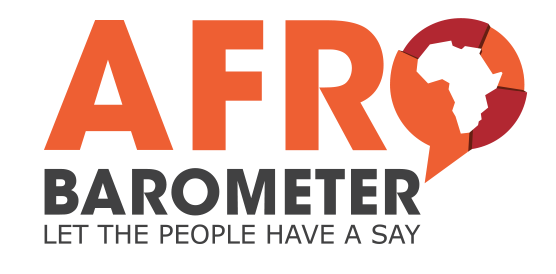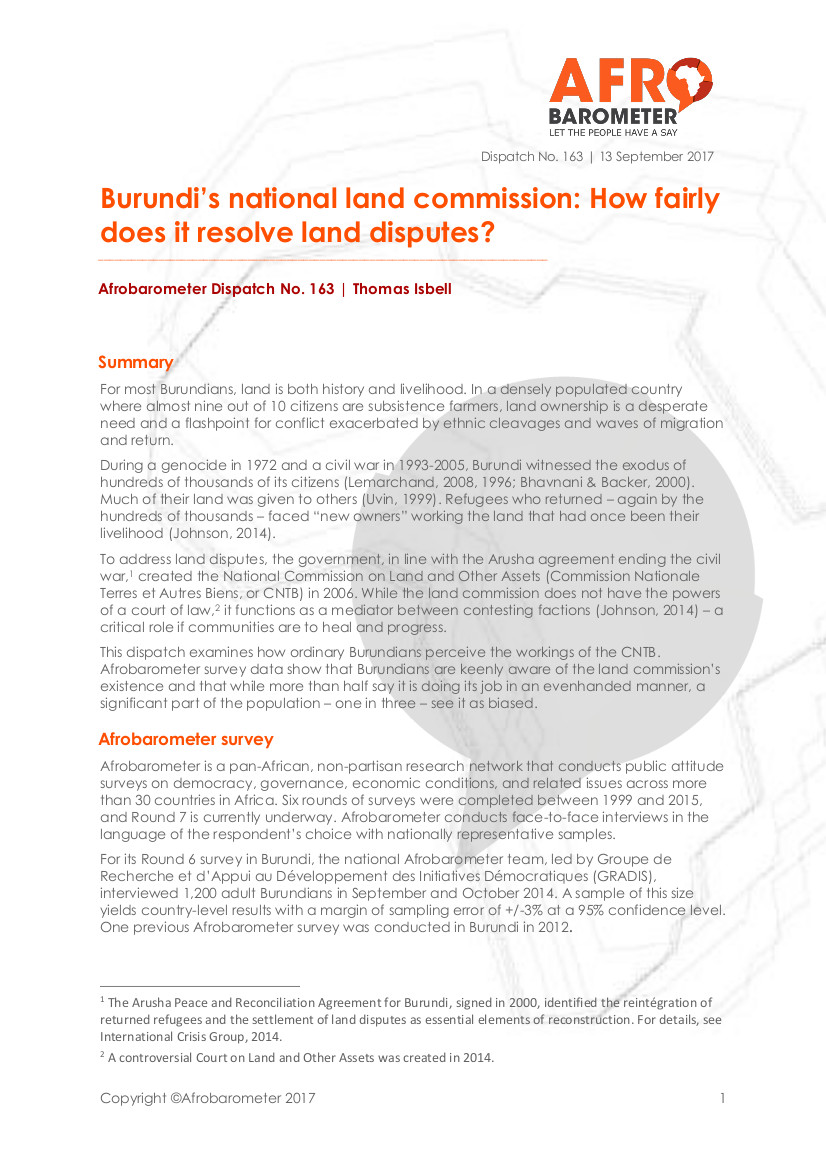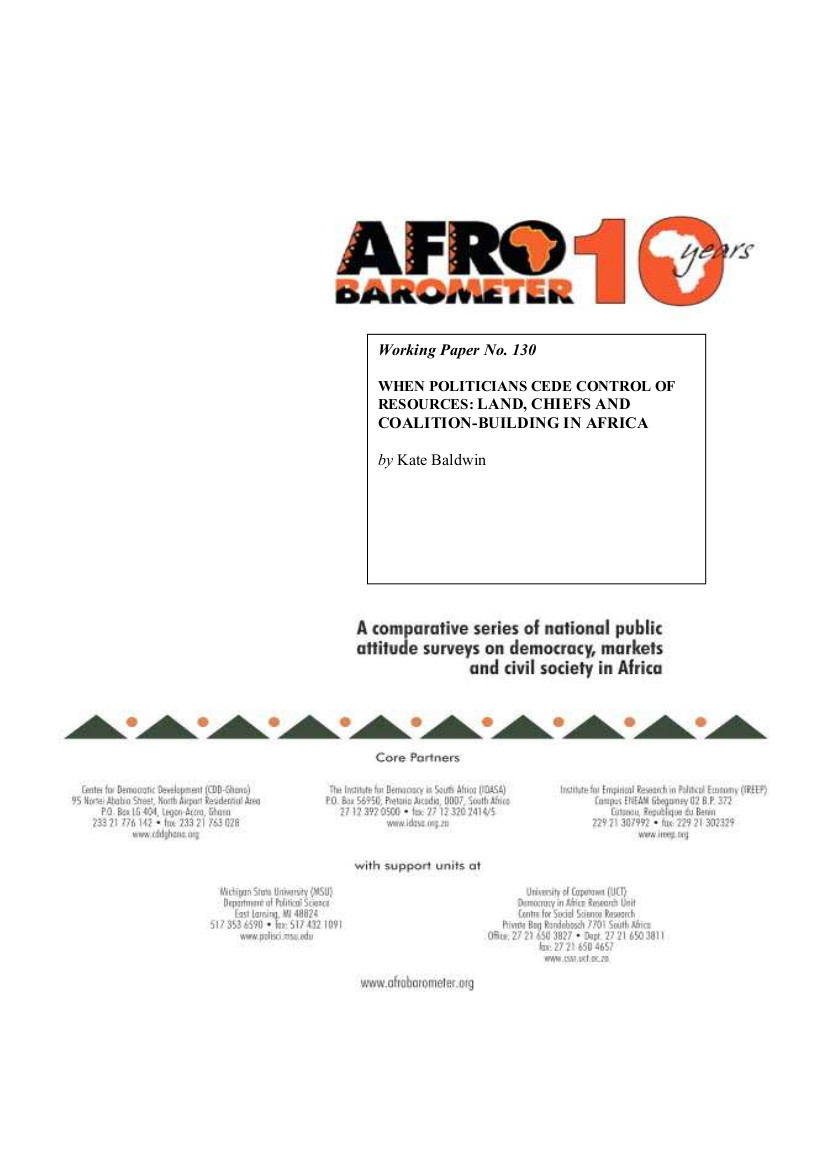Focal point
Location
Afrobarometer is a pan-African, non-partisan research network that conducts public attitude surveys on democracy, governance, economic conditions, and related issues in more than 35 countries in Africa. Through our findings, ordinary citizens can have a voice in policy-making processes that affect their lives.
It is the world’s leading research project on issues that affect ordinary African men and women. It collects and publishes high-quality, reliable statistical data on Africa which is freely available to the public.
It is carried out through a partnership of the Ghana Center for Democratic Development (CDD Ghana), Institute for Justice and Reconciliation (IJR) in South Africa, Institute for Empirical Research in Political Economy (IREEP) of the African School of Economics at Abomey Calavi in Benin, Institute for Development Studies (IDS) at the University of Nairobi, the Institute for Democracy, Citizenship and Public Policy in Africa at the University of Cape Town and the Department of Political Science at Michigan State University.
Members:
Resources
Displaying 1 - 5 of 5Land redistribution: South Africans prioritize land taken in forced removals, support ‘willing seller’ approach
In 1913, South Africa’s Land Act set aside 87% of the country’s land for exclusive use and ownership by white people, helping to divide the nation into a relatively prosperous white heartland and a cluster of increasingly impoverished black reserves on the periphery and within cities (Walker, 2017). More than a century later, South Africa is still struggling to redress this historical injustice and the inequality it continues to foster.
Burundi’s national land commission: How fairly does it resolve land disputes?
For most Burundians, land is both history and livelihood. In a densely populated country where almost nine out of 10 citizens are subsistence farmers, land ownership is a desperate need and a flashpoint for conflict exacerbated by ethnic cleavages and waves of migration and return.
Gender equality in Burundi: Why does support not extend to women's right to inherit land?
With 27,834 km² of surface area and a population of 10.5 million, Burundi’s population density is seven times that of Tanzania and second only to Rwanda’s on the African mainland (World Bank, 2014). Its population grows at an annual rate of 2.4%, and more than 90% of the population lives primarily on agriculture.
When politicians cede control of resources: Land, chiefs and coalition-building in Africa
Why would politicians give up power over the allocation of critical resources to community leaders? This article examines why many African governments have ceded power over the allocation of land to non-elected traditional leaders. In contrast to the existing literature, which suggests traditional leaders’ power is a hang-over from the colonial period that has not been eliminated due to weak state capacity, I argue that African politicians often choose to devolve power to traditional leaders as a means of mobilizing electoral support from non-coethnics.
Land disputes in Liberia: Disputes from below, 2008
An Afrobarometer survey was conducted for the first time in Liberia in 2008. The findings enable us to assess popular opinions on land disputes and the likely consequences for peace and stability in Liberia.






